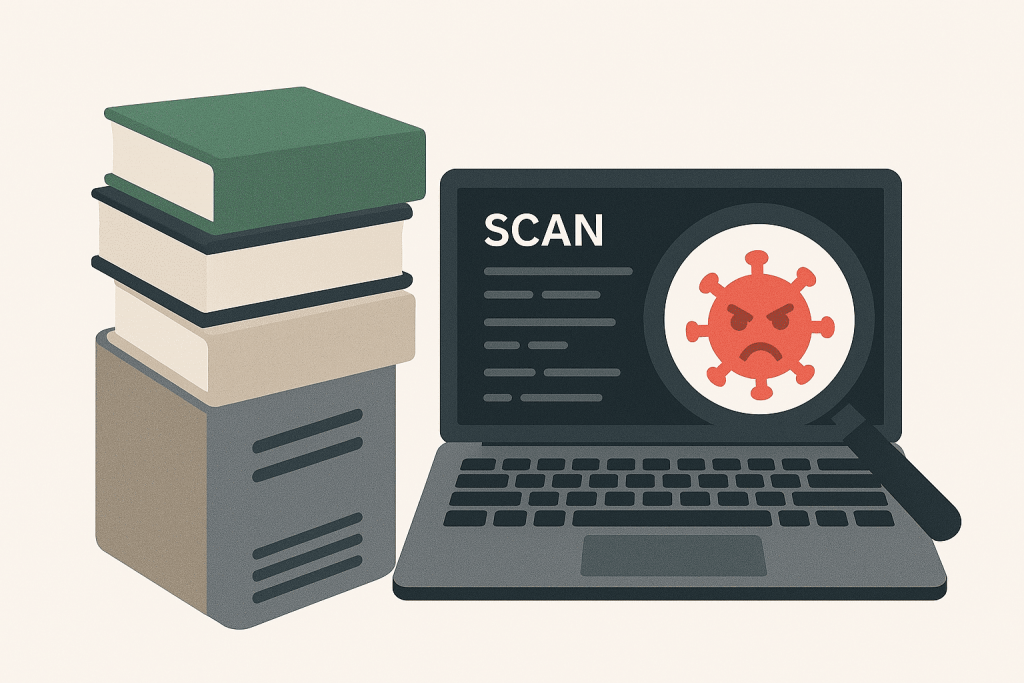
In today’s world, information security and the stable operation of a virtual private server (VPS) are essential and constant concerns for any business. While Linux is considered one of the most secure operating systems, it is not immune to viruses and malware.
In this article, we’ll walk you through how to scan your Linux VPS for viruses and provide practical recommendations for keeping your server secure.
Why It’s Important to Regularly Scan Your VPS for Viruses
Linux-based VPS servers are widely used for web hosting, storing critical data, running web applications, and hosting other services. If infected, a server can result in:
- Data loss
- User data leaks
- Damage to your reputation
- Financial losses
Regular scans help you:
- Detect threats in time
- Prevent data breaches
- Improve server stability
- Avoid penalties from search engines and antivirus services
The Most Popular Tools to Scan Linux VPS for Viruses
Let’s take a look at some of the most reliable tools that can help you scan your server for malware. Among the most popular are ClamAV, Rkhunter, and Chkrootkit.
1. ClamAV
ClamAV is one of the most widely used free antivirus tools for Linux.
Installation:
sudo apt update sudo apt install clamav clamav-daemon -yScan the entire server:
sudo clamscan -r / --exclude-dir="^/sys|^/proc|^/dev"2. Rkhunter
Rootkit Hunter is a tool designed to detect rootkits and other malicious components.
Installation:
sudo apt install rkhunter -yScan the server:
sudo rkhunter --update sudo rkhunter --check3. Chkrootkit
Another effective tool for detecting rootkits and trojans.
Installation:
sudo apt install chkrootkit -yScan the system:
sudo chkrootkitSigns That Your VPS Might Be Infected
Even as the internet evolves, so do the threats that come with it. Here are some signs that may indicate the presence of malware:
- Unusually high CPU or RAM usage
- Suspicious network activity
- Slow server performance
- Unknown processes or files appearing in the system
Check active network connections:
sudo netstat -tunaplPractical Tips for Scanning and Protecting Your Linux VPS
Now that we’ve identified common threats, here are some practical recommendations for defending against them.
1. Regular System Updates
Keeping your OS and software up to date is one of the best ways to protect your server:
sudo apt update && sudo apt upgrade -y2. Monitor for Suspicious Processes
Check running processes with:
ps aux3. Use a Firewall
A firewall like UFW (Uncomplicated Firewall) adds an essential layer of protection:
sudo apt install ufw -y sudo ufw enableReal-Time Antivirus Protection
You can configure ClamAV to run as a daemon for real-time protection:
sudo systemctl enable clamav-daemon sudo systemctl start clamav-daemonRegular Backups
Frequent backups can help restore your server quickly in case of an incident. Use tools like rsync, tar, or specialized backup solutions.
What to Do if a Virus is Found
If your antivirus detects a threat:
- Isolate the server (disconnect it from the network).
- Inspect and remove infected files.
- Restore from a clean backup, if available.
- Analyze the source of infection and fix vulnerabilities (e.g., update passwords, patch software, close open ports).
High-Quality and Secure VPS from RX-NAME
The best way to avoid infection is to choose a reliable hosting provider. VPS hosting from RX-NAME offers:
- High performance and stability
- Flexible security configuration
- Full root access
- Support for modern verification systems
- 24/7 technical support
You can order a secure and reliable VPS today directly on the RX-NAME website.
Final Thoughts
Regular virus and malware scans are a crucial part of keeping your server secure. By following the tips outlined above, you can detect and neutralize threats in time, ensuring uninterrupted operation of your services.
Always remember: prevention is the foundation of security, and it starts with choosing a trusted hosting provider — like RX-NAME.

Leave a Reply